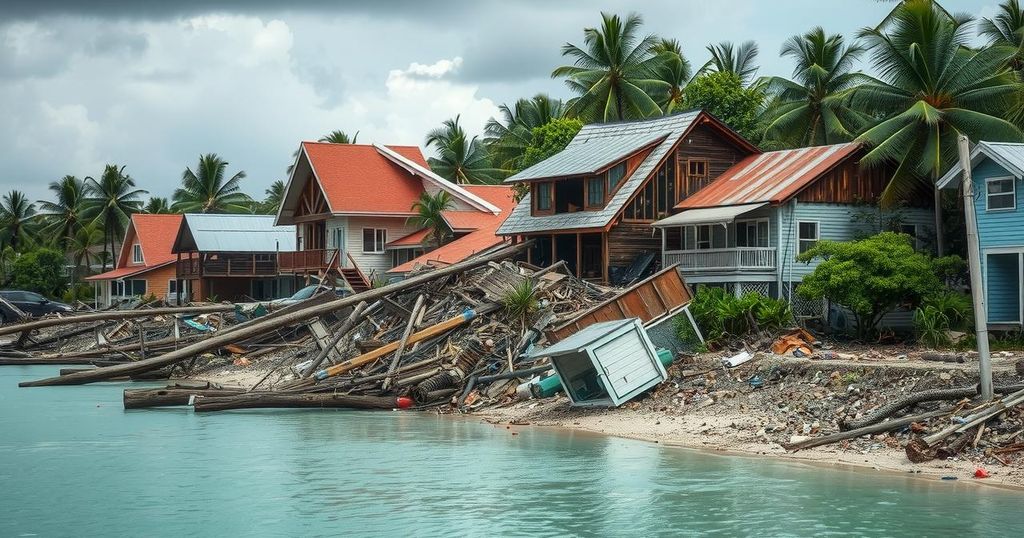Devastating Cyclone in Mayotte Leaves Thousands Feared Dead
A cyclone in Mayotte has left thousands feared dead amid ongoing rescue efforts, with initial reports indicating 11 fatalities. Prefect Francois-Xavier Bieuville has condemned the unprecedented destruction, raising concerns about recovery and aid logistics. The cyclone also threatens Mozambique, impacting millions. Immediate government responses are being activated to address the crises.
On Saturday, a devastating cyclone swept through the French territory of Mayotte, leaving thousands feared dead. While initial reports indicated a lower official death toll, estimates suggest that fatalities could reach into the thousands as rescue operations continue. Prefect Francois-Xavier Bieuville emphasized the unprecedented nature of the cyclone’s destruction since 1934, with winds recorded up to 140 miles per hour, categorized as a level four cyclone. The immediate aftermath reveals widespread devastation, including flattened neighborhoods and uprooted trees, hampering rescue efforts.
The cyclone has severely impacted the impoverished population of Mayotte, which stands at approximately 320,000 across its two islands in the Indian Ocean. As the French government mobilizes aid, it has dispatched 1,600 personnel to assist in recovery and to prevent potential looting. Although the official death toll is currently reported at 11, numerous individuals remain missing and the situation is increasingly dire. The prefect has indicated that the final count could be overwhelmingly high due to the local Muslim tradition of quick burials.
Cyclone Chido’s effects stretched beyond Mayotte, as it moved towards Mozambique, threatening millions with potential flooding and destruction. In spite of political unrest within Mozambique, UNICEF has committed to maintaining essential services for those adversely affected by the cyclone. As rescue and recovery operations continue, efforts are focused on addressing the immediate needs of the Mayotte population while also preparing for the unfolding crisis in neighboring regions.
The cyclone that struck Mayotte is described as one of the most violent in its recorded history, with historical records indicating it as the most destructive since 1934. Mayotte’s socioeconomic challenges, as it is noted to be France’s poorest territorial island, amplify the tragedy of this natural disaster. The Indian Ocean region often experiences severe tropical storms, with implications that affect socio-economic conditions, emergency preparedness levels, and governmental response and assistance capabilities. The cyclone not only affected Mayotte, but also posed significant threats to Mozambique, where millions could potentially face challenges due to flooding and damage to critical infrastructure. The intersection of these natural disasters with existing political tensions in the region complicates recovery and humanitarian efforts.
In summary, the cyclone in Mayotte has engendered a catastrophic humanitarian crisis, with fears of a death toll reaching into the thousands. The severe infrastructure damage, existing poverty in the region, and swift burial traditions pose considerable challenges to recovery efforts. Moreover, the cyclone’s trajectory into Mozambique adds further urgency to the situation. As international aid is mobilized, the focus remains on providing immediate assistance to the cyclone-stricken communities and preparing for the continuing impact of Cyclone Chido.
Original Source: www.thetravel.com




Post Comment